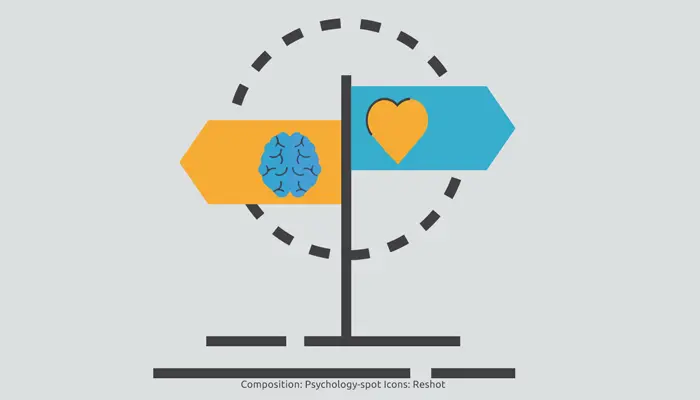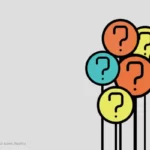
There’s a good reason because Steve Jobs, Angela Merkel, and Barack Obama almost always dressed the same: to avoid decision fatigue. Using the same style every day saved them from making inconsequential decisions that could deplete their ability to resolve bigger issues.
According to a study conducted at Cornell University, they were not wrong. Every day we make an average of 35,000 decisions, of which 226 are related to food. However, the truth is that many times we make these small decisions without being fully aware of them.
Not paying enough attention to those little everyday decisions can lead us to live on autopilot, but paying too much attention to them leads to decision fatigue, so we are faced with a dilemma that we need to resolve.
What is decision fatigue?
Our brain is not able to make a clear distinction between the significant and important decisions in life and those more inconsequential, so that both can generate the same worry, stress and doubts. When many unresolved issues pile up, we can suffer from decision fatigue.
Decision fatigue, or cognitive fatigue, is a psychological phenomenon that was first discovered in people who suffered from cognitive deficits due to a neurological problem, trauma, developmental disorder or brain injury. Psychologists found that when these people had to face everyday decisions, they tended to tire more than ordinary people.
They concluded that our “cognitive capacity” is limited, so the more decisions we have to make, the more we will drain our resources. Therefore, decision fatigue occurs when we suffer a cognitive and emotional overload after making multiple decisions, so that many of the decisions we make from that moment will not be optimal.
As a result, we end up suffering mental fatigue similar to physical exhaustion that becomes a source of stress, frustrations and regrets. That is one of the reasons why, at the end of the day, we tend to make worse decisions than in the morning, when our minds are clear.
Who is more likely to suffer from decision fatigue?
Psychological research has revealed that no one is immune from decision fatigue. This problem has been seen by judges conducting multiple parole hearings, as well as magazine editors reviewing submitted manuscripts and air traffic control workers.
However, it has also been found that some people are more prone than others to decision fatigue:
• Those who adopt avoidant coping strategies tend to procrastinate, so that decisions pile up and are more likely to develop decision fatigue.
• Those who assume a passive behavior after making a decision, so that these are without effect since they are not put into practice, as found in a study carried out at the University of Minnesota. Thus, decision-making becomes a useless process that only serves to burn mental energy without solving practical problems.
• Those who suffer “psychological myopia”, which is the tendency to focus on the information directly related to a decision and ignore the background data. In this way, people inadequately weigh their alternatives, disproportionately weighing potential losses over possible gains, which leads them to reconsider their decisions again and again, causing enormous fatigue.
The unsuspected consequences of decision fatigue
People who experience decision fatigue are more likely to develop impulsive behaviors and make rash decisions due to the psychological pressure they experience. The fact that their reasoning ability is impaired, causes them to see things from a biased perspective and make worse decisions.
A study conducted at the Catholic University of Leuven found that decision fatigue can also cause us to experience situations, problems and conflicts with greater intensity, so that everyday frustrations and setbacks are much more irritating than they really are.
Decision fatigue also affects our performance, slowing us down and causing us to make more mistakes. Finally, psychologists from the University of Minnesota found that this state even decreases our physical resistance, making us more sensitive and decreasing our tolerance to pain.
How to combat decision fatigue?
1. Learn to distinguish the urgent from the important
Dwight Eisenhower, the general in charge of planning the military operations of the Normandy landings, had to make many difficult decisions. They say that his secret was to understand that “The urgent are not important, and the important are never urgent.” In practice, it is a matter of differentiating those really important decisions that require more cognitive resources, from unforeseen events that are urgent, but not so important. In this way we can distribute our cognitive resources as the situation demands.
2. Reduce the number of daily decisions
It is not about living on automatic pilot, but about focusing our mental energy on what really counts and can make a difference. One way to do this is to automate the most inconsequential decisions we make every day. Think, for example, of all the little decisions that you make over and over and just leave them “on schedule” to reserve your energy for bigger decisions. So you won’t have to find yourself at the same crossroads over and over again. Creating practical routines that make you feel good and take a load off your shoulders is an excellent strategy for eliminating those decisions.
3. Make important decisions early in the morning
We tend to have a clearer mind early in the morning. Sleep leveled and calmed the emotions of the previous day and we have not yet faced the problems of the new day. Our brain is recharged and fresh, so it can weigh the different options more effectively. In addition, making decisions as soon as the day begins will generate a feeling of efficiency that can accompany us throughout the day and will allow us to start the day feeling lighter.
Optimization yes, cognitive laziness no
Decision fatigue should not become an excuse for not making decisions as we would end up falling into the arms of procrastination. The line that divides the optimization of the decision-making process from cognitive laziness, can be very subtle and easy to cross.
We must bear in mind that routines and habits add value, but homogeneity does not. Following certain routine, sends clear signals to our body to prepare for the next action and allows us to save considerable energy.
However, flattening our days leads to affective dullness and apathy, which threatens to empty our lives of meaning. Not changing routines that have stopped working or putting off important decisions due to sheer fatigue will not make us more successful or happy.
Sources:
Pignatiello, G. A. et. Al. (2020) Decision Fatigue: A Conceptual Analysis. J Health Psychol; 25(1): 123–135.
Baumeister, R. F. et. Al. (2008) Making choices impairs subsequent self-control: a limited-resource account of decision making, self-regulation, and active initiative. J Pers Soc Psychol; 94(5): 883-898.
Vohs, K. D. et. Al. (2008) Making choices impairs subsequent self-control: a limited-resource account of decision making, self-regulation, and active initiative. J Pers Soc Psychol; 94(5): 883-898.
Wansink, B. & Sobal, J. (2007) Mindless Eating: The 200 Daily Food Decisions We Overlook. Environment and Behavior; 39(1): 106-123.
Bruyneel, S. et. Al. (2006) Repeated choosing increases susceptibility to affective product features. International Journal of Research in Marketing; 23(2): 215-225.
Thaler, R. H. et. Al. (1997) The Effect of Myopia and Loss Aversion on Risk Taking: An Experimental Test. The Quarterly Journal of Economics; 112(2): 647–661.



